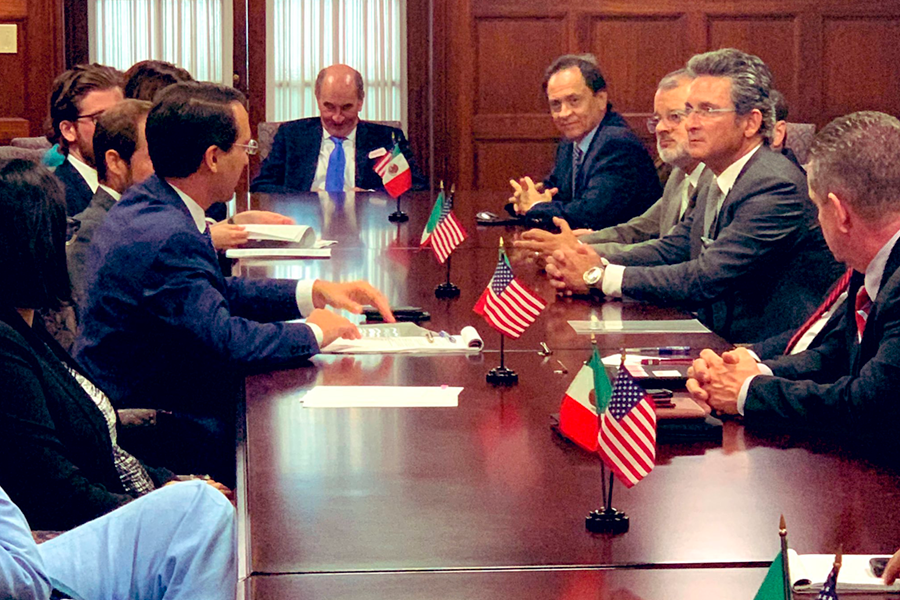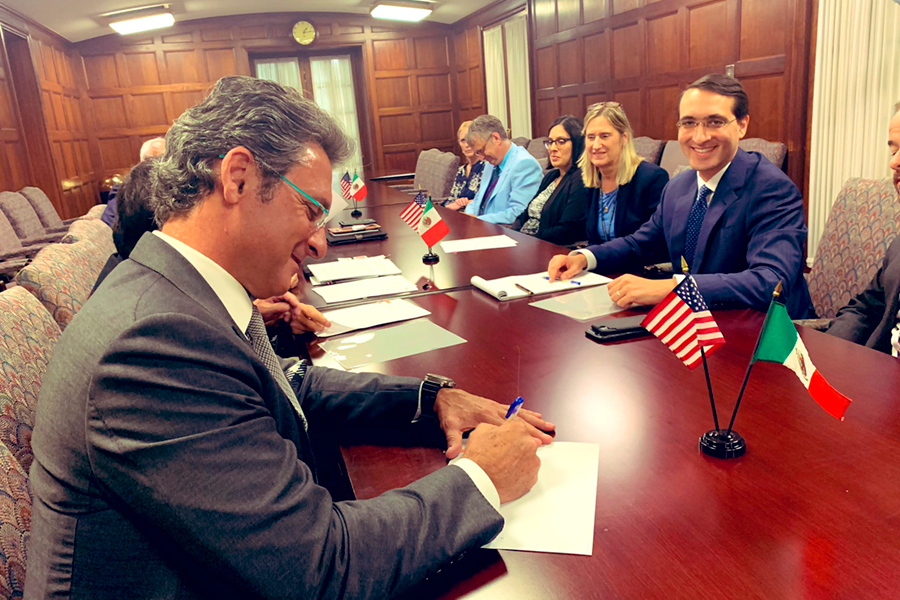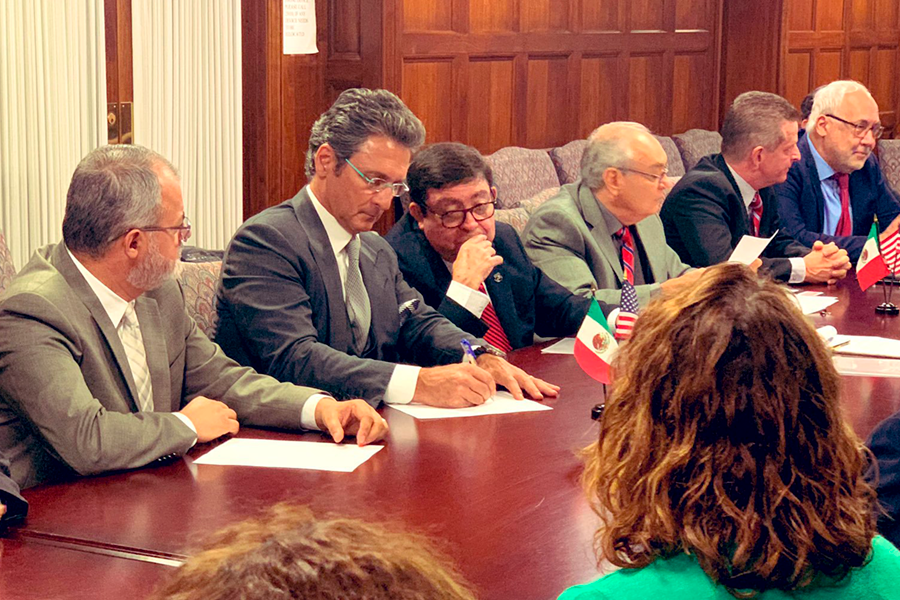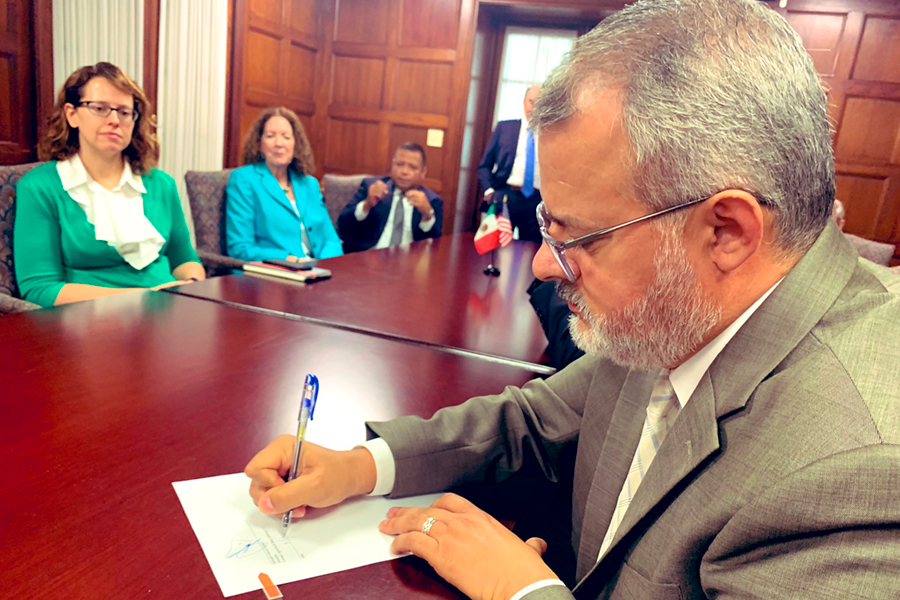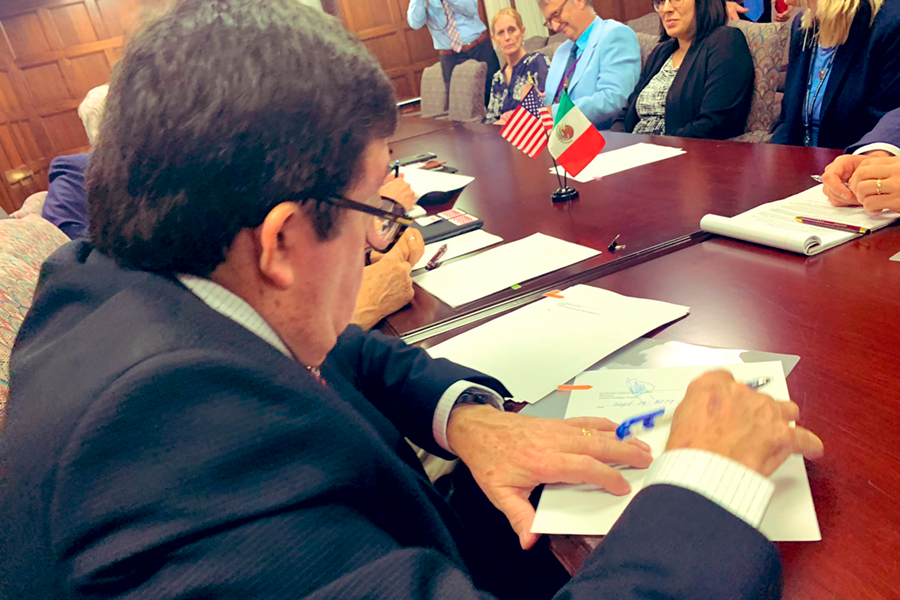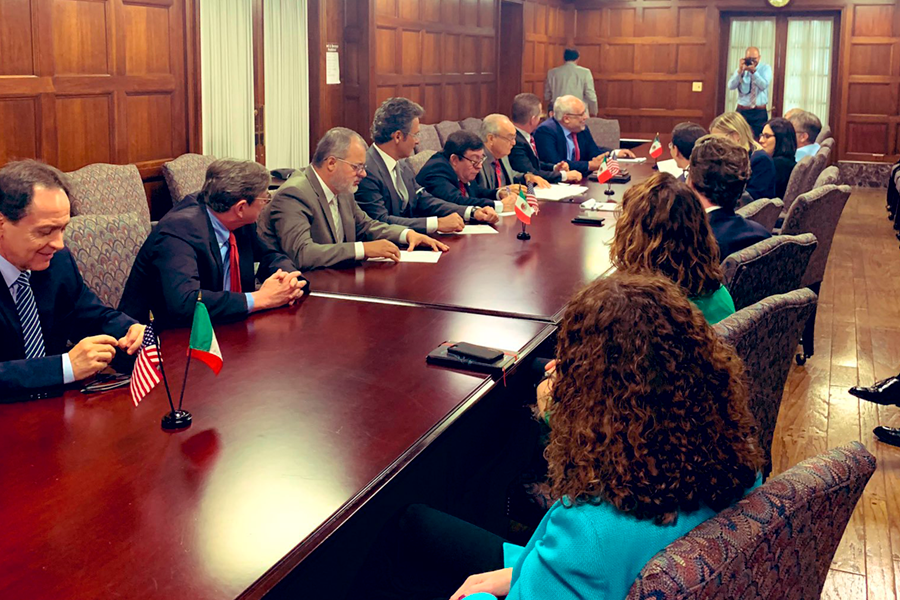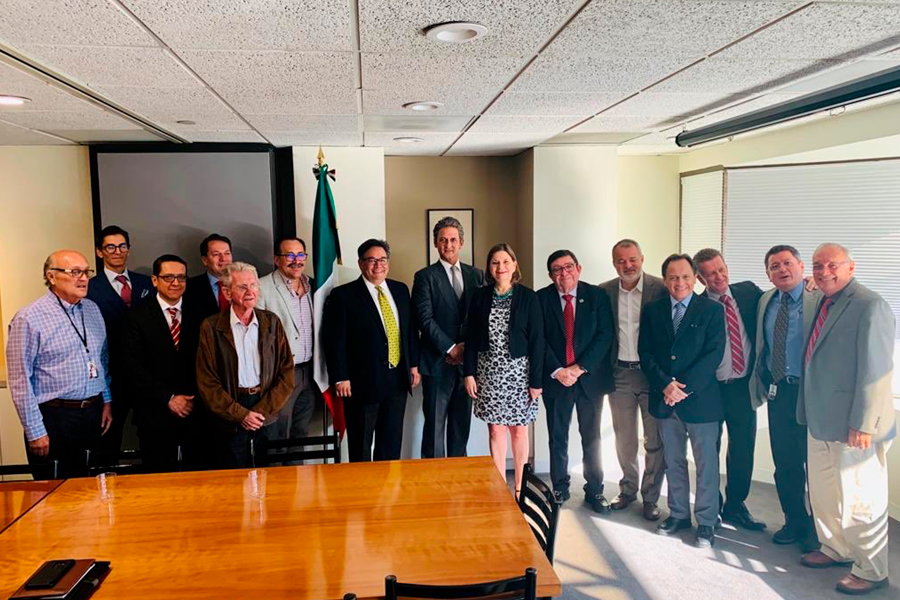U.S. Department of Commerce finalizes Tomato Suspension Agreement
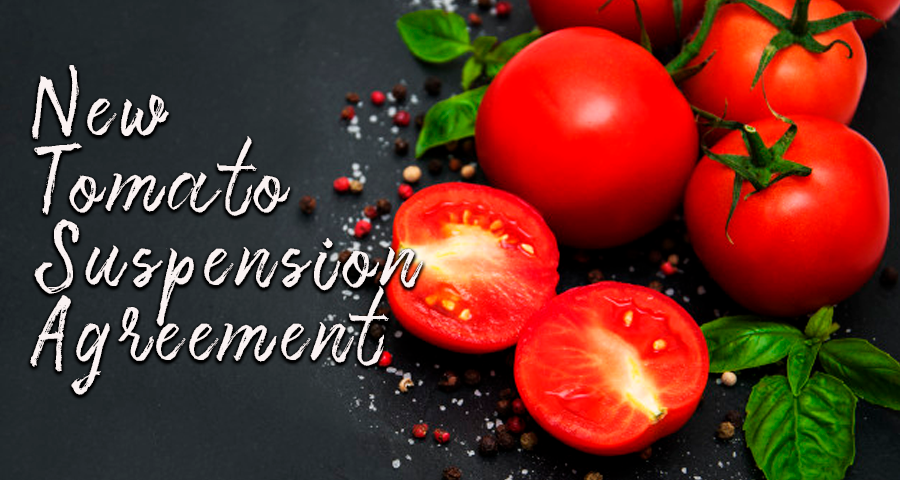
The U.S. Department of Commerce released its final decision on the Mexican Tomato Suspension Agreement Sept. 19. The 17.56 percent tariff that has been in place on Mexican tomatoes in recent months will end and the industry will return to reference prices, which come with stricter oversight than the past.
The key point of concern to Mexican tomato interests is that, beginning approximately six months from the agreement’s effective date, “all loads of subject merchandise shall be subject to a USDA inspection for quality and condition defects near the border after entering the United States.”
“Subject merchandise,” Commerce specified, is Mexican fresh round and Roma tomatoes (including stem on) and grape tomatoes in bulk. “The following fresh tomatoes are excluded from the inspection requirement: tomatoes on the vine, specialty tomatoes, and grape tomatoes in retail packages of two pounds or less.”
Lance Jungmeyer, president of the Fresh Produce Association of the Americas, said, “It is completely unnecessary to require USDA to conduct quality inspections on an item that has already demonstrated a historical pass rate of 99.76 percent.”
Jungmeyer said, “It is estimated that constructing new warehouse space for inspections will cost importers more than $200 million upfront, plus another $50 million a year in fees and other costs.
“It is outrageous that Commerce used false justifications to introduce what essentially acts as a quota or volume control method,” Jungmeyer continued.
The FPAA noted, “Vine-ripened tomatoes are a sensitive perishable item that continue to ripen after harvest, and typically must be delivered to customers within seven days after harvest. Adding a day or two for inspection at the border reduces shelf life.
“USDA has assured us the inspections can be done within 24 hours. If that’s really the case, then there should be no problem, including language for a waiver in the instance the deadline can’t be met,” Jungmeyer said.
The FPAA indicated that Arizona Senator Martha McSally sent a letter to Commerce Sept. 19, requesting that shipments be released from the inspection requirement in the event that USDA is not able to conduct a timely inspection within 24 hours. While the new agreement states that USDA will conduct and complete the inspection “normally within 24 hours,” the new agreement falls short of providing a waiver in case the inspection cannot be done.
In its press release supporting the DOC decision on Sept. 19 the Florida Tomato Exchange welcomed “a new agreement suspending the antidumping investigation of fresh tomatoes from Mexico. The new suspension agreement includes strong monitoring, enforcement and anti-circumvention provisions, including border inspections, that should help eliminate the injury to American tomato farmers caused by dumped Mexican tomatoes. The border inspections will only cover about 66 percent of imported Mexican tomatoes, but this provision should discourage dumping of low quality and defective tomatoes, which have been depressing prices and injuring U.S. tomato producers for years.”
“Today’s successful outcome validates the Administration’s strong and smart approach to negotiating trade deals,” Secretary of Commerce Wilbur Ross said in the DOC press release. “The Department’s action brought the Mexican growers to the negotiating table and led to a result that protects U.S. tomato producers from unfair trade. It also removes major uncertainties for the Mexican growers and their workers.”
The DOC position is that “the suspension agreement completely eliminates the injurious effects of unfairly priced Mexican tomatoes, prevents price suppression and undercutting, and eliminates substantially all dumping, while allowing Commerce to audit up to 80 Mexican tomato producers and U.S. sellers per quarter, or more with good cause. In addition, the agreement also closes loopholes from past suspension agreements that permitted sales below the reference prices in certain circumstances, and includes an inspection mechanism to prevent the importation of low-quality, poor-condition tomatoes from Mexico, which can have price-suppressive effects on the market.”
The DOC action “stems from a November 14, 2018 request from the Florida Tomato Exchange that Commerce terminate the 2013 Suspension Agreement on Fresh Tomatoes from Mexico,” the agency noted. “On February 6, 2019, Commerce notified the Mexican signatories that it would withdraw from the 2013 Suspension Agreement. On May 7, 2019, the 2013 Suspension Agreement was terminated and, as a result, Commerce continued its AD (anti-dumping) investigation on imports of fresh tomatoes from Mexico.”
The Department of Commerce continued that this “exemplifies the Trump Administration’s priority of enforcing U.S. trade laws, while ensuring that trade agreements are fair, reciprocal, and benefit American farmers, workers, businesses, and consumers. Tomato producers across America, including those in Florida, Texas, and Arizona, will benefit from this agreement.
“Commerce’s Enforcement and Compliance unit within the International Trade Administration, which negotiated today’s suspension agreement, is responsible for vigorously enforcing U.S. trade law and does so through an impartial, transparent process that abides by international rules and is based on factual evidence provided on the record.”
The Fresh Produce Association of the Americas said the new tomato suspension agreement ensures “continued market access for Mexican tomatoes but it comes at an extreme cost to importers, who will face unjustified costs and disruption to business due to the controversial border inspection mechanism, which acts as a technical barrier to trade.”
FPAA indicated being pleased “that the Mexican growers were able to secure some changes in the agreement that make the agreement more palatable, such as clarifying certain technical definitions. But in the end, the imposition of a non-tariff trade barrier represents a step backward in international trade.”
“The United States has fought and fought for decades to reduce phony and unjustifiable non-tariff barriers to trade. Now that Commerce has pushed this inspection, other countries may be emboldened to push for similar restrictions on imports of U.S. foods into their countries,” Jungmeyer said, adding, “It is truly short-sighted.”
The FPAA indicated, “Importers of other items that legitimately require inspection, such as avocados, citrus and table grapes, now could face economic damage due to slowdowns in getting inspections, considering the massive amount of new inspections that must occur.
“Food is a just-in-time business,” Jungmeyer said. “All around, this is a total step backward.”
In its statement the Florida Tomato Exchange noted “This agreement, like any trade agreement, will only work if it is enforced. The FTE looks forward to working with the Commerce Department and the USDA to ensure that the agreement is enforced vigorously and to identify and stop all efforts to circumvent or undermine its provisions, especially the border inspection system. Today’s signing is a step in the right direction to stop further injury to American farmers caused by dumped Mexican tomatoes.”
The Mexican Team during the Negociatons of the Tomato Suspension Agreement was represented by:
Rosario Antonio Beltran Ureta, CAADES-CIDH, President
Mario Haroldo Robles Escalante, CAADES-CIDH, CEO
Oscar Woltman, Mexican Association of Protected Horticulture, (AMHPAC, for its initials in Spanish) Past President
Alfredo Diaz Belmontes, Mexican Association of Protected Horticulture, (AMHPAC, for its initials in Spanish), CEO
Antonio Gandara Gonzalez, Association of Fruit and Vegetables Growers of Yaqui and Mayo Valleys, President
Salvador Garcia Valdez, Baja California Growers Association, President
Fuente: theproducenews.com




